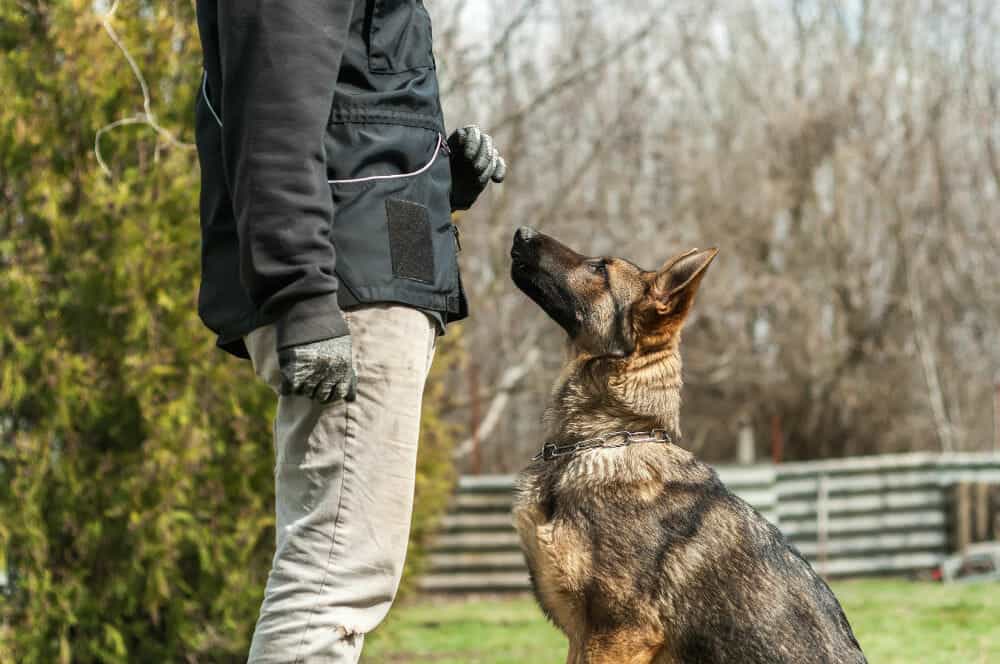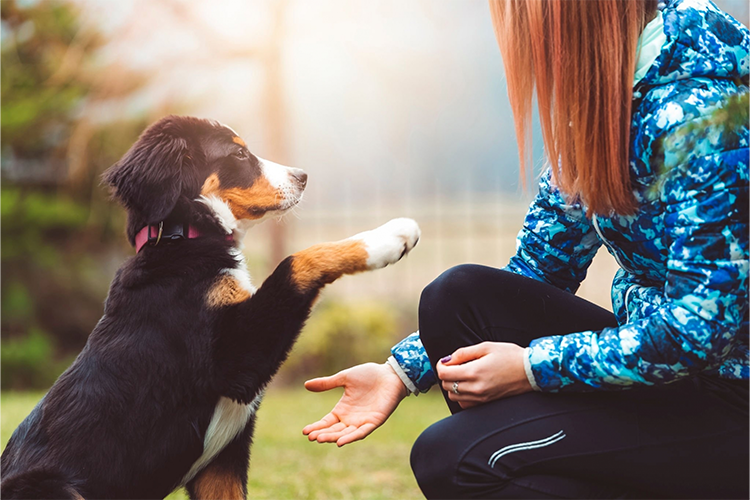The Ultimate Overview to Positive Support in Dog Training
The Ultimate Overview to Positive Support in Dog Training
Blog Article
Important Tips for Effective Dog Training: A Guide for Pet Owners
Reliable pet dog training is a diverse process that needs a critical approach customized to both the animal's character and the proprietor's goals. Key parts such as developing regular commands, using positive support, and facilitating early socializing play essential roles in cultivating a well-adjusted canine companion. Many family pet proprietors experience challenges that can hinder progression, leading to stress and uncertainty. Recognizing exactly how to browse these obstacles can considerably enhance the training experience, inevitably changing the relationship in between owner and pet dog. What are the necessary strategies that can be utilized to ensure success in this undertaking?
Recognizing Canine Actions
Understanding pet habits is necessary for effective training and fostering an unified relationship between canines and their proprietors. dog training. Pets interact mainly through body language, articulations, and actions, making it vital for owners to analyze these signals properly.

Socializing plays a substantial role in dog habits; exposure to various settings, people, and various other animals can dramatically affect a pet dog's character. Variables such as breed qualities and private temperament must direct training methods, as some breeds may have particular behavior attributes that require customized strategies. By recognizing these aspects, proprietors can develop an encouraging setting that motivates favorable habits, resulting in successful training outcomes and a much deeper bond with their family pets.
Developing Regular Commands
Efficient interaction with your pet begins with establishing regular commands. This foundational element of training is important for cultivating understanding in between you and your family pet. Consistency in the commands you use ensures that your dog can dependably connect details words or phrases with the wanted behaviors.
When choosing commands, select clear, unique words that are easy to distinguish and state from each other. Prevent utilizing similar-sounding commands that may perplex your pet dog. Using "rest" and "stay" is ideal, yet "sit" and "hit" might lead to misunderstandings.
Furthermore, maintain the exact same tone and quantity for each command. Dogs are sensitive to vocal signs, so varying your tone can create complication.
It is just as important to ensure that all member of the family get on the exact same web page relating to the commands utilized. A united front in command use will stop combined signals and reinforce the discovering procedure.
Favorable Reinforcement Strategies
The power of positive support in pet training hinges on its capability to encourage preferred actions via rewards and praise. This technique is based in the concept that actions complied with by favorable outcomes are most likely to be duplicated. By integrating positive support into your training routine, you can successfully form your dog's actions in a constructive manner.
To execute favorable support, it's necessary to recognize what inspires your dog, whether it be deals with, playthings, or verbal appreciation. When your pet dog executes a wanted action, such as sitting on command, right away compensate them with a reward or affection. This association between the command and the favorable result enhances their understanding.
It's crucial to timing the rewards appropriately; providing the support within secs of the preferred habits helps your dog make the connection (dog training). Additionally, uniformity is essential-- ensure that all member of the family use the same commands and benefit systems to prevent complication

Slowly, you can decrease the regularity of treats as your canine learns the habits, transitioning to praise or intermittent rewards. This approach not only promotes a strong bond in between you and your pet dog yet additionally promotes a positive knowing setting, making go to this website educating an enjoyable experience for both.
Socialization and Communication
Regularly exposing your dog to a selection of settings, individuals, and various other animals is essential for their social growth. Socialization ought to begin early, ideally during the vital window of 3 to 14 weeks, when puppies are most receptive to new experiences. Older canines can likewise benefit from recurring socialization efforts.
Present your pet dog to different settings, such as parks, pet-friendly shops, and metropolitan areas. This exposure helps them adjust to different stimulations, lowering anxiety and concern actions. Motivate positive communications with other canines and individuals, making sure that these encounters are risk-free and controlled to foster confidence.
Make use of structured playdates with well-mannered canines, as this can enhance your canine's social skills and educate them ideal actions. Obedience courses and training sessions likewise give excellent opportunities for socialization, permitting your dog to engage with others in a monitored atmosphere.
Display your canine's body movement during communications, as this will assist you assess their comfort degree. Gradually raise direct exposure to even more challenging situations while ensuring that each experience declares. A well-socialized pet is most likely to display well balanced actions, making them a pleasure Your Domain Name to have in any setup.
Resolving Typical Training Challenges
Every canine owner will certainly experience training challenges at some time, no matter of their canine's age or socializing level. Determining typical problems such as stubbornness, disturbances, and fearfulness can aid in creating reliable strategies for renovation.

Gradually introduce interruptions as the pet dog comes to be extra skilled in commands. Short, regular training sessions are likewise reliable in keeping focus.
Terror can impede a pet dog's knowing procedure. Progressive desensitization to the source of worry, coupled with positive reinforcement, can assist alleviate anxiousness. Perseverance is essential; never ever require a pet dog right into a situation that creates distress, as this may worsen the issue.
Inevitably, understanding and resolving these common go now challenges with a structured technique will cultivate a much more effective training experience, strengthening the bond between pet dog and proprietor while advertising efficient knowing.
Conclusion
In recap, successful dog training relies upon a detailed understanding of canine habits, the facility of constant commands, and the application of positive reinforcement strategies. Socializing plays an important role in developing well-adjusted family pets, while attending to typical training challenges needs patience and adaptability. By executing these crucial techniques, family pet proprietors can cultivate a strong bond with their dogs and promote preferable habits, inevitably resulting in an unified partnership in between people and their canine friends.
Comprehending canine habits is vital for reliable training and promoting an unified relationship in between pooches and their owners.Socializing plays a significant function in dog habits; direct exposure to numerous atmospheres, people, and various other animals can significantly affect a pet dog's temperament.The power of positive reinforcement in dog training lies in its capacity to urge wanted actions via benefits and appreciation. By incorporating positive support into your training program, you can successfully shape your pet's habits in a constructive way.
In recap, successful pet dog training counts on a comprehensive understanding of canine habits, the establishment of consistent commands, and the application of positive support techniques.
Report this page